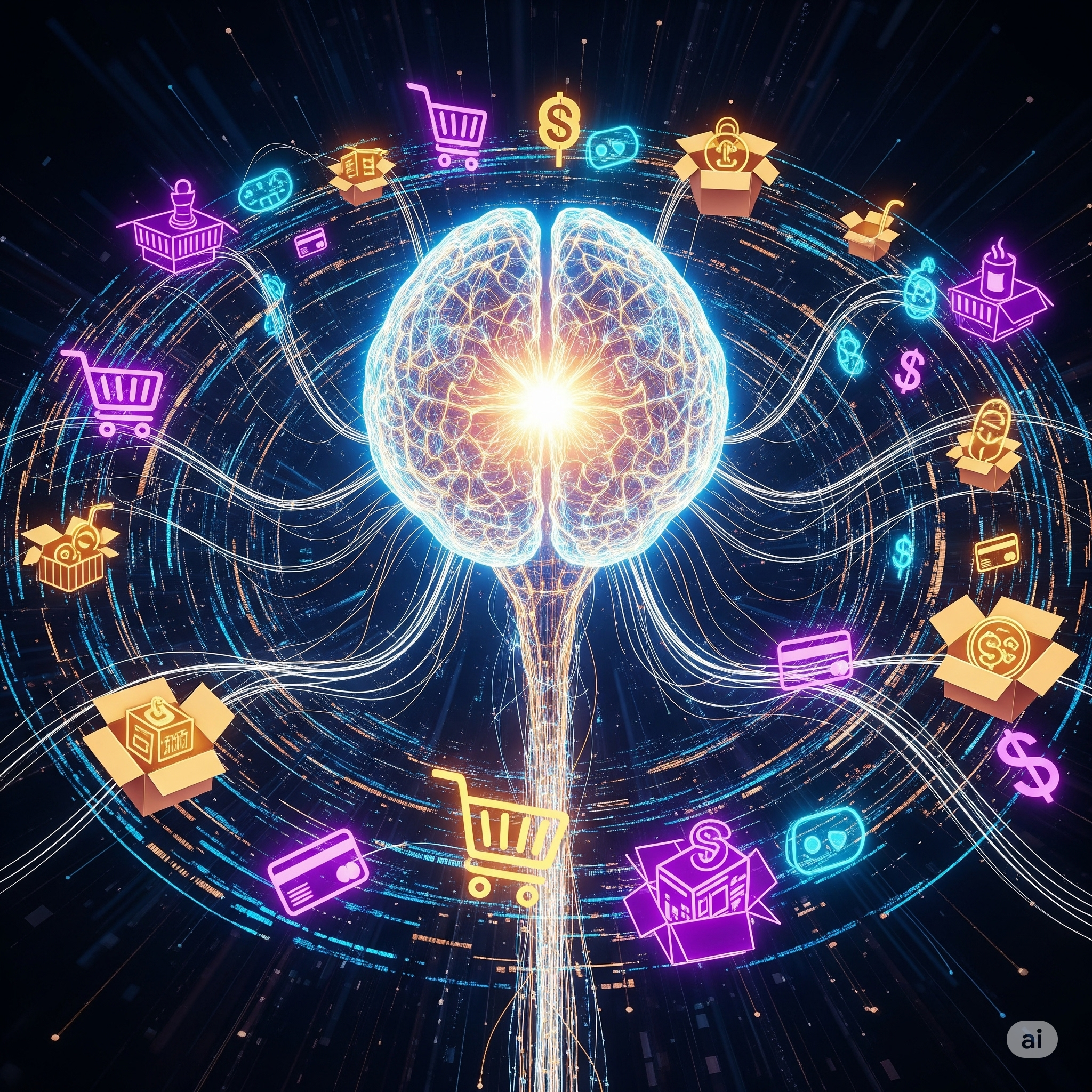In the fast-paced world of e-commerce, staying ahead of the competition requires more than just a great product. It demands a strategic approach to customer engagement, marketing, operations, and analytics. Artificial intelligence (AI) has emerged as a game-changing technology that can supercharge e-commerce growth by automating tasks, personalizing the customer experience, and providing data-driven insights that were once out of reach.
For businesses looking to optimize their online stores, increase conversions, and build a loyal customer base, AI tools are no longer a luxury—they are a necessity. This article will explore some of the best AI tools available today, highlighting how they can be leveraged to drive e-commerce success across various business functions.
Table of Contents
- Personalization and Recommendation Engines
- AI-Powered Customer Service and Chatbots
- Marketing and Advertising Automation
- Fraud Detection and Cybersecurity
- Supply Chain and Inventory Management
- Visual Search and Product Discovery
- Pricing and Merchandising Optimization
- The Future of AI in E-Commerce
- Conclusion: Choosing the Right Tools for Your Business
- FAQ: Your Questions About AI Tools for E-Commerce Answered
Personalization and Recommendation Engines
One of the most powerful applications of AI in e-commerce is the ability to create highly personalized shopping experiences. AI-powered recommendation engines analyze a customer’s browsing history, purchase behavior, and demographic data to suggest products they are most likely to buy. This not only increases sales but also improves customer satisfaction by making the shopping journey more relevant and enjoyable.
- Tools to Consider: Many e-commerce platforms have built-in AI recommendation features, but dedicated tools can offer more advanced capabilities. Look for solutions that provide dynamic recommendations across your website, email marketing, and mobile app.
AI-Powered Customer Service and Chatbots
Providing fast and efficient customer support is crucial for building trust and loyalty. AI chatbots and virtual assistants can handle a high volume of routine customer inquiries 24/7, such as order status updates, frequently asked questions, and product information. This frees up human support agents to focus on more complex issues, leading to better overall service.
- Tools to Consider: Many platforms offer customizable chatbot solutions that can be integrated with your e-commerce store and other communication channels. Look for tools that can be trained on your specific product data and customer questions.
Marketing and Advertising Automation
AI is transforming how e-commerce businesses approach marketing and advertising, enabling them to reach the right audience with the right message at the right time. AI-powered marketing tools can automate campaign management, optimize ad spend, and generate personalized content.
- Tools to Consider: Platforms that offer AI-driven ad campaign optimization, predictive audience targeting, and automated content creation are essential for modern e-commerce marketing.
Fraud Detection and Cybersecurity
As e-commerce grows, so does the threat of online fraud. AI tools can analyze transaction data in real time to detect patterns indicative of fraudulent activity, such as unusual purchase behavior, high-risk locations, or stolen credit card numbers. This helps businesses protect their revenue and build a secure platform for their customers.
- Tools to Consider: Many payment gateways and security platforms now offer AI-powered fraud detection as a core feature. Look for solutions that provide robust, real-time analysis to minimize chargebacks and protect against fraudulent transactions.
Supply Chain and Inventory Management
AI can bring a new level of intelligence to supply chain and inventory management. By analyzing historical sales data, market trends, and even weather patterns, AI can more accurately forecast demand, optimize inventory levels, and predict potential supply chain disruptions. This helps businesses avoid stockouts and overstocking, leading to increased profitability.
- Tools to Consider: There are dedicated AI platforms for supply chain and inventory management that integrate with your e-commerce store and warehouse systems to provide intelligent forecasting and automation.
Visual Search and Product Discovery
AI-powered visual search is revolutionizing how customers discover products. Customers can upload an image of a product they want to find, and the AI will scan your inventory to find the closest match. This provides a seamless and intuitive shopping experience that can lead to higher conversions.
- Tools to Consider: Some e-commerce platforms offer visual search as a built-in feature, while others require third-party integrations. Look for tools that can be easily customized to your product catalog.
Pricing and Merchandising Optimization
AI can help businesses make smarter decisions about pricing and product merchandising. AI tools can analyze competitor pricing, customer demand, and other market factors to recommend dynamic pricing strategies that maximize revenue and profitability. They can also optimize product placement on your website to increase visibility and conversions.
- Tools to Consider: Look for AI tools that offer dynamic pricing, A/B testing for product placement, and data-driven insights into merchandising effectiveness.
The Future of AI in E-Commerce
The future of AI in e-commerce is bright. We can expect to see more sophisticated AI tools that integrate across all aspects of the business, from automated product descriptions and customer reviews to hyper-personalized marketing campaigns and predictive customer service. The key to success will be in adopting a holistic approach, where AI is used not just as a single tool but as a central nervous system for the entire e-commerce operation.
Conclusion: Choosing the Right Tools for Your Business
AI is no longer an optional add-on for e-commerce success; it is a fundamental driver of growth. From personalizing the customer experience to optimizing supply chains and detecting fraud, AI tools offer a strategic advantage that can help businesses thrive in a competitive market. By carefully evaluating your business needs and choosing the right AI tools, you can unlock new opportunities, increase efficiency, and build a more profitable and sustainable e-commerce business.
FAQ: Your Questions About AI Tools for E-Commerce Answered
Q1: What is a recommendation engine, and how does it work? A recommendation engine is an AI tool that suggests products to customers based on their past behavior, browsing history, and the behavior of similar customers.
Q2: Can AI chatbots completely replace human customer service? No, AI chatbots are best used for handling routine inquiries and can free up human agents to focus on more complex, high-value customer service issues.
Q3: How can a small e-commerce business afford AI tools? Many AI tools are available as cloud-based, subscription services, making them accessible and affordable for businesses of all sizes without significant upfront investment.
Q4: What are the main benefits of using AI for fraud detection? AI-powered fraud detection can analyze transactions in real-time, detect subtle patterns that humans might miss, and reduce the risk of fraudulent chargebacks and financial losses.
Q5: How does AI help with e-commerce marketing? AI can automate marketing campaigns, personalize content for different customer segments, and optimize ad spend to improve campaign performance and ROI.
Q6: What is “visual search,” and why is it important for e-commerce? Visual search allows customers to upload an image to find products. It is important because it provides a more intuitive and seamless product discovery experience, which can lead to higher conversions.
Q7: How does AI help with inventory management? AI can analyze historical sales data and other factors to more accurately forecast demand, helping businesses optimize inventory levels, reduce waste, and avoid stockouts.
Q8: What is dynamic pricing in e-commerce? Dynamic pricing is a strategy where prices are adjusted in real-time based on market demand, competitor pricing, and other factors, and is often powered by AI to maximize revenue.





